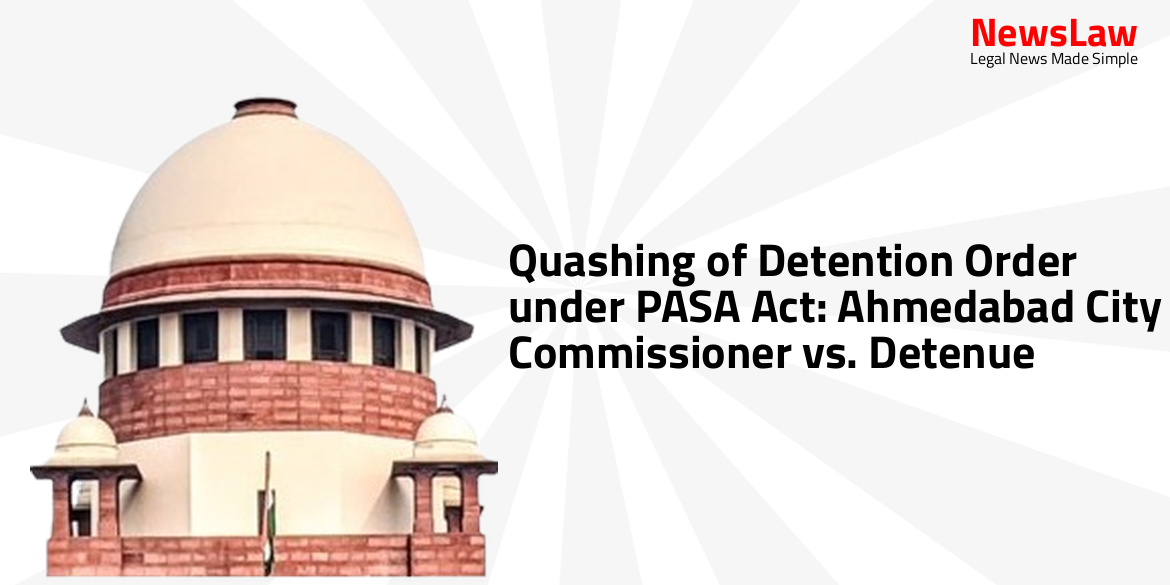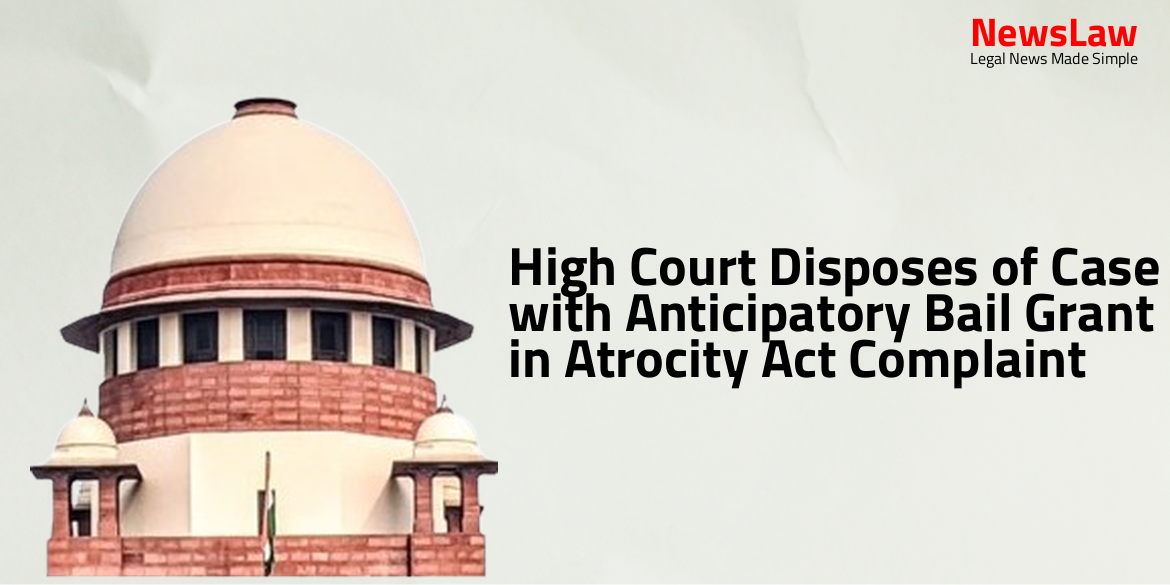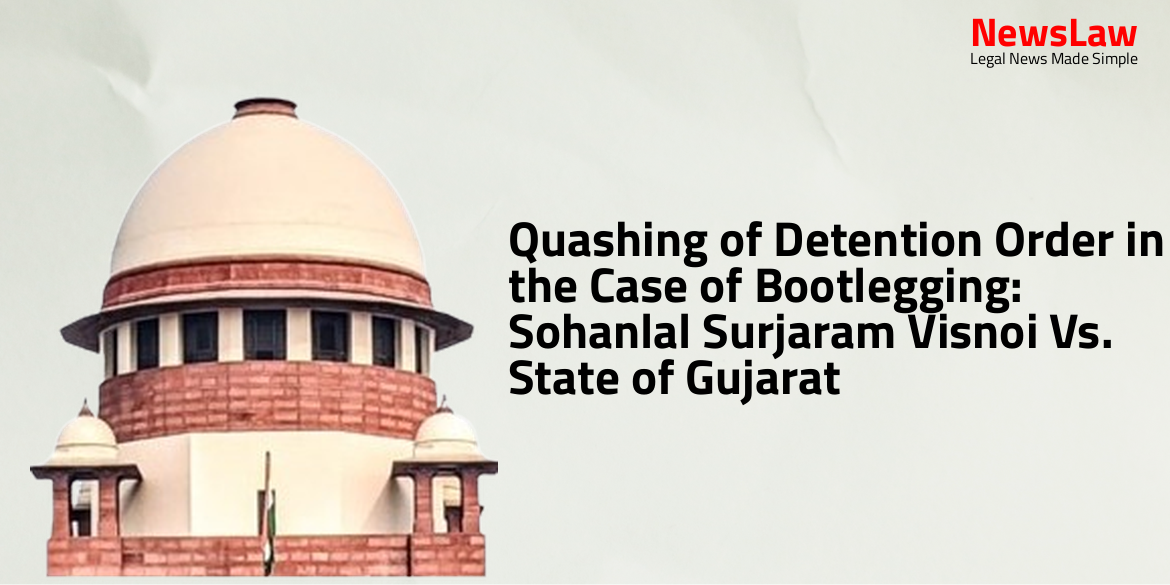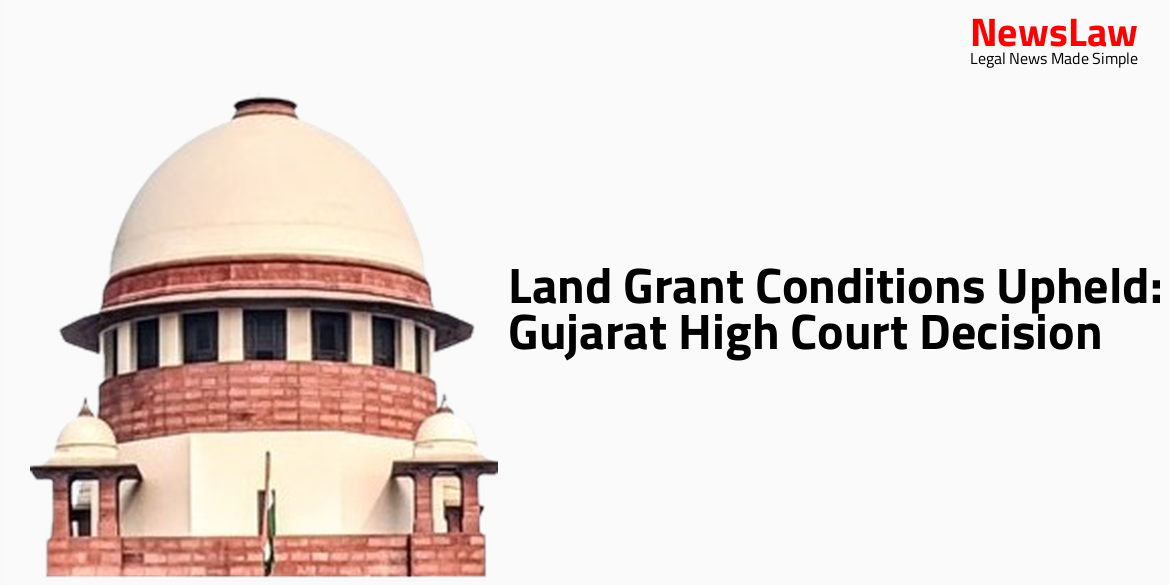In a significant development, the Gujarat High Court has issued a ruling in the case of the Ahmedabad City Commissioner vs. Detenue, regarding the quashing of a detention order under the PASA Act. The court examined the grounds of detention and the impact on public order in its decision. Learn more about the intricacies of this case and the court’s findings.
Facts
- Petitioner filed a petition to quash the order of detention under PASA Act.
- The order was passed by the Commissioner of Police, Ahmedabad City.
- The petition seeks to set aside the 02.11.2023 detention order.
- The detention order was issued under Section 3(1) of the PASA Act.
Arguments
- Detenue was detained for being a ‘bootlegger’ based on registration of five offences under the Gujarat Prohibition Act.
- Detenue’s alleged activities were not deemed to have affected the even tempo of society or posed a threat to normal life of the people at large.
- Detenue’s actions were considered a breach of law and order rather than a disturbance to public order or social apparatus.
- The alleged illegal activity lacked nexus with the maintenance of public order.
- AGP objected to the grant of petition
- Sufficient material against the detenue indicates habitual illegal activity
- Detaining authority rightly passed the order of detention
- AGP argues present petition should not be entertained
Analysis
- Detenue could be proceeded with under relevant provisions of the Act but not under definition of ‘bootlegger’ in PASA Act.
- No subjective satisfaction appears to have been arrived at by detaining authority before passing order.
- Allegations, even if true, do not seem to pose a threat to ‘public order’.
- The expression ‘public order’ requires relevant material to show that the detenu is a threat to society and causes disturbance to public order.
- Breach of peace or public tranquility may lead to a law and order situation but not necessarily disturb public order.
- The distinction between ‘law and order’ and ‘public order’ has been clearly laid down in the case of Pushker Mukherjee v/s. State of West Bengal (AIR 1970 SC 852).
- Not every act of assault or injury to specific persons leads to public disorder.
- A mere disturbance of law and order leading to disorder is not automatically considered sufficient for action under the Preventive Detention Act; it must affect public order to come under the scope of the Act.
- Contravention of any law affects order, but to affect public order it must impact the community or the public at large.
- Subjective satisfaction of the detaining authority in this case was deemed vitiated as the lesser remedy of cancellation of bail was available but not utilized before resorting to preventive detention.
- The subjective satisfaction was held to be vitiated in the case of Shaik Nazeen v/s. State of Telangana and Ors., indicating that seeking shelter under preventive detention may not be the proper remedy given the circumstances.
- Simply registering FIRs does not necessarily indicate a breach of maintenance of public order, and there was insufficient relevant material to invoke the powers under section 3(2) of the Act.
- The petition was allowed, the impugned order of detention was quashed, and the detenue was ordered to be set at liberty if not required in any other case.
Decision
- The detenue was released on bail on 30.10.2023 after the fifth FIR.
- The impugned order of detention was issued on 02.11.2023, just two days after the bail.
- Direct service of the order is permitted.
Case Title: NISARG @ BHAGO JAGDISHBHAI KANUBHAI DARJI Vs. THE COMMISSIONER OF POLICE, AHMEDABAD CITY
Case Number: R/SCA/20595/2023



